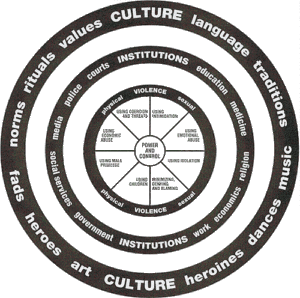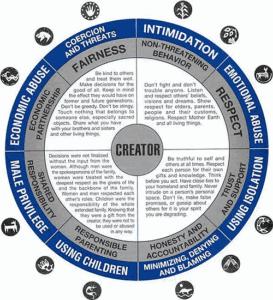COVID-19 RESOURCES
Responding to COVID-19: Resources and Information
COVID-19 Resources for Indian Country, developed by the Harvard Project and the John Hopkins Center for American Indian Health, has developed a COVID-19 Resources for Indian Country Toolbox that offers resources on building governance capacity, tribes’ best practices and information about the virus in addition to tribal health ordinances.
The Safe & Together Institute has developed a COVID-19 specific series of blog posts on responding to domestic abuse survivors and their children during the pandemic, along with practice tips, at Safe & Together in a Time of Crisis.
The National American Indian Court Judges Association (NAICJA) has a page devoted to Pandemic Resources for Tribal Courts, which includes a link to relevant court orders, sample orders, and declarations categorized by Tribe.
See Disaster Planning for Tribal Domestic Violence Programs and Shelters from the National Indigenous Women’s Resource Center (NIWRC). The recorded webinar looks at personal preparedness and how to continue the critical operations of domestic violence programs during the pandemic.
The Tribal Law & Policy Institute offers information on responding to the virus on their COVID-19 Resource Page, including the legal and court response on the TLPI Court and Legal Resources page.
Visit Red Wind Consulting’s COVID-19 Resources for information from the CDC, IHS, NNEDV and other organizations on considerations in addressing the virus.
The American Indian Health Commission (AIHC) for Washington State offers model plans, policies, codes and resolutions for Tribes on their AIHC COVID-19: Model Plans, Policies, Codes and Resolutions page.
For recommendations and resources for advocates and programs in responding to the crisis, go to the NNEDV’s Resources on the Response to the Coronavirus (COVID-19), which includes Recommendations for Responding to COVID-19 in Domestic Violence Shelters and tips for Helping a Friend Experiencing Domestic Violence During COVID-19, among other resources.
The Centers for Disease Control offers a page on Social Distancing for Tribal Communities with Local COVID-19 Transmission, which includes tips for multi-generational households.
The Resource Sharing Project has pulled together some sample policies that address working remotely, administrative leave, and the Families First Coronavirus Response Act. These policies can be found at http://www.resourcesharingproject.org/covid-19-sample-policies.
COVID-19 Guidance for Tribal Programs
The National Indigenous Women’s Center (NIWRC) has developed COVID-19 Guidance for Tribal Programs, adapted from the National Network to End Domestic Violence (NNEDV) “Guidance to State Coalitions”, with guidance on confidentiality, precautionary measures, and the provision of alternative services during the crisis. Go to: COVID-19 Guidance for Tribal Programs to view and download.
Access to mental health services for survivors from the National Center on Domestic Violence, Trauma, and Mental Health:
Guidance for OVW grantees from the Office on Violence Against Women:
June 29, 2020 COVID-19 Update for Grantees – Updated Guidance on Short-Term Administrative Relief for Grantees Impacted by COVID-19
OVW Tribal Programs’ Six-Month Progress Reporting: For information on reporting during COVID-19, see the VAWA Measuring Effectiveness video: Reporting in a Pandemic Training and their FAQs page for Tribal Government Program grantees. TSASP, Tribal Coalitions and Tribal Jurisdiction Programs grantees can access information on progress reporting specific to their grant program at: https://www.vawamei.org/grant-programs/ (listed alphabetically).
April 30, 2020 COVID-19 Update for Grantees – Resource Guide for Grantees
Grant Adjustment Notice (GAN) Help Sheet OVW Tribal Affairs Division
OVW Tribal Governments Program Manager Assignments by State
March 19, 2020 Notice: Message from the OVW Acting Director and COVID-19 FAQs for Grantee Programs
March 17, 2020 Notice: Office on Violence Against Women DC Staff Transition to Telework and Related Information
March 17, 2020 Notice: Office on Violence Against Women Human Resources Policies on Telework, Remote Work, and Administrative Leave for Programs
Providing victim services remotely from NNEDV, including:
Best Practices for Mobile Devices
Using Technology to Communicate with Survivors During a Public Health Crisis (additional resources can be found in NNEDV’s Digital Services Toolkit)
Best Practices When Using Mobile Devices for Advocacy
How to Operate a Remote Workplace During a Public Health Crisis
Other Resources on COVID-19 for Tribal Communities:
The Urban Indian Health Institute has developed a resource page with updates and resources for tribes and urban Indian organizations and communities about the Novel Coronavirus outbreak. Go to: COVID-19 (Novel Coronavirus 2019)
The Centers for Disease Control offers a Toolkit for Tribal Communities with guidance and planning documents specific to COVID-19, and a page for Tribal Communities responding to the corona virus pandemic, as well as a page on Social Distancing for Tribal Communities with Local COVID-19 Transmission, which includes tips for multi-generational households.
OUR MISSION
Mending the Sacred Hoop works from a social change perspective to end violence against Native women and children while restoring the safety, sovereignty, and sacredness of Native women. We are dedicated to strengthening the voice and vision of Native peoples. Our approach is founded on grassroots organizing within communities, restoring the leadership of Native women in addressing domestic and sexual violence.



